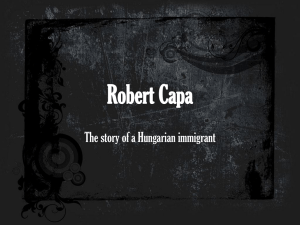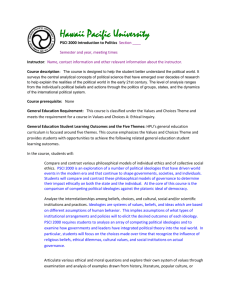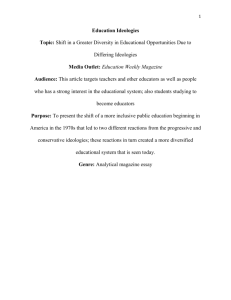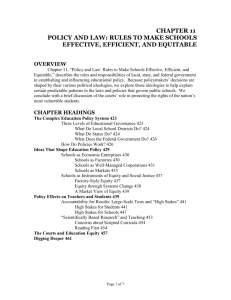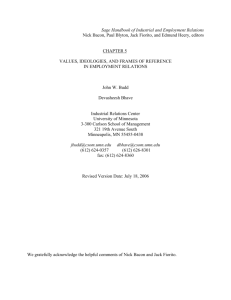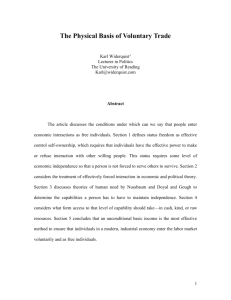The learning of historical minority languages and English
advertisement
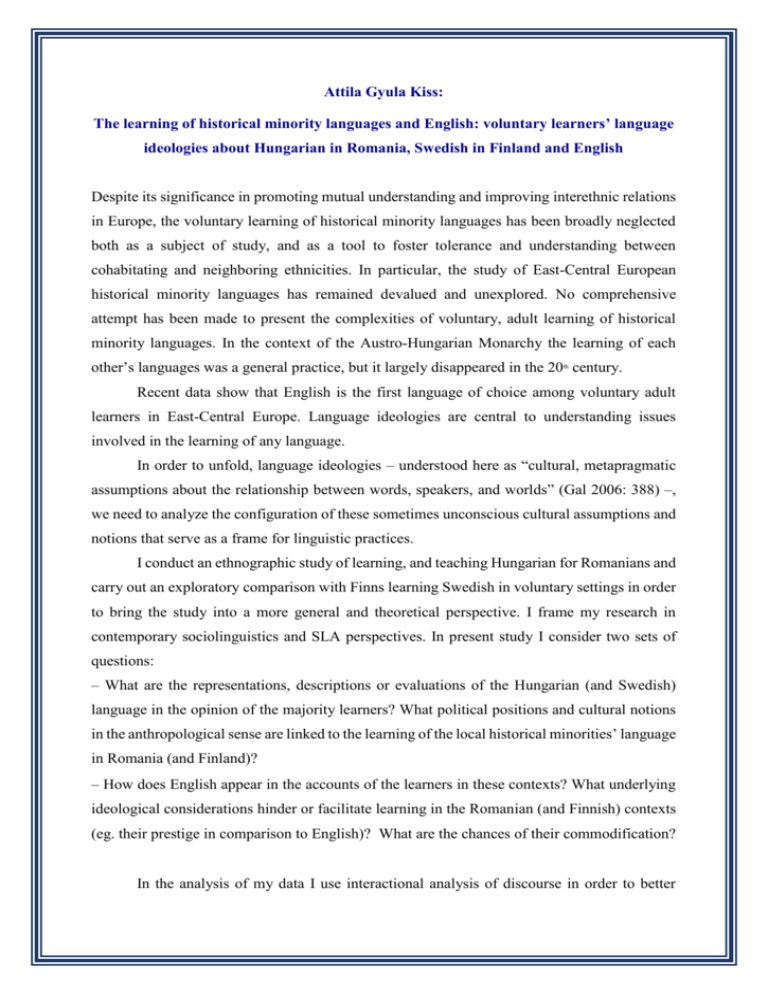
Attila Gyula Kiss: The learning of historical minority languages and English: voluntary learners’ language ideologies about Hungarian in Romania, Swedish in Finland and English Despite its significance in promoting mutual understanding and improving interethnic relations in Europe, the voluntary learning of historical minority languages has been broadly neglected both as a subject of study, and as a tool to foster tolerance and understanding between cohabitating and neighboring ethnicities. In particular, the study of East-Central European historical minority languages has remained devalued and unexplored. No comprehensive attempt has been made to present the complexities of voluntary, adult learning of historical minority languages. In the context of the Austro-Hungarian Monarchy the learning of each other’s languages was a general practice, but it largely disappeared in the 20th century. Recent data show that English is the first language of choice among voluntary adult learners in East-Central Europe. Language ideologies are central to understanding issues involved in the learning of any language. In order to unfold, language ideologies – understood here as “cultural, metapragmatic assumptions about the relationship between words, speakers, and worlds” (Gal 2006: 388) –, we need to analyze the configuration of these sometimes unconscious cultural assumptions and notions that serve as a frame for linguistic practices. I conduct an ethnographic study of learning, and teaching Hungarian for Romanians and carry out an exploratory comparison with Finns learning Swedish in voluntary settings in order to bring the study into a more general and theoretical perspective. I frame my research in contemporary sociolinguistics and SLA perspectives. In present study I consider two sets of questions: – What are the representations, descriptions or evaluations of the Hungarian (and Swedish) language in the opinion of the majority learners? What political positions and cultural notions in the anthropological sense are linked to the learning of the local historical minorities’ language in Romania (and Finland)? – How does English appear in the accounts of the learners in these contexts? What underlying ideological considerations hinder or facilitate learning in the Romanian (and Finnish) contexts (eg. their prestige in comparison to English)? What are the chances of their commodification? In the analysis of my data I use interactional analysis of discourse in order to better understand the construct of social reality. Therefore, I take the interpretivist stance of linguistic ethnography, describe practices and address questions to shed light on the language ideologies in order to gain insights into the relation of social action and language learning. I use an integrative approach and look at larger social and historical processes and structures beyond the interaction. Bibliography Gal, Susan 2006. Language, its stakes and its effects. In Goodin, Robert & Charles Tilly (eds.), The Oxford handbook of contextual political analysis. Oxford: Oxford University Press.







